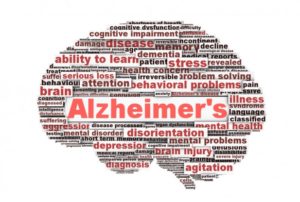Research Philosophy
 Because mind matters.
Because mind matters.
Alzheimer’s disease (AD) destroys our most advanced cognitive abilities, but it may begin by disrupting more basic bodily and brain functions. These “presymptomatic” changes may be hard to detect–if you aren’t looking for them. We are. The best chance of fighting AD is to stop or slow its progress before it damages higher-order brain areas that control memory, thought, and personality. The C.Crish Lab’s research mission is to identify the earliest indicators that the body and brain are under siege by neurodegenerative disease, interrogate the mechanisms that allow these changes to occur, and develop innovative targets for therapeutic intervention.
Vision in hindsight.
Alzheimer’s disease (AD) is the 6th leading cause of death in the U.S., with over 5.7 million people currently afflicted (1). AD robs patients of their memory, their sense of security, and even their sense of self. And this description dramatically understates the full impact AD has on patients and their loved ones.
There are currently no treatments that change the course of Alzheimer’s disease, and the course of Alzheimer’s disease always ends with death.
My introduction to the biomedical study of AD occured back in 1997 when I was an undergraduate student sitting in my first neuroscience course. Today, biomedical science has nothing more to offer patients in terms of disease-modifying treatments than it did 20 years ago. As I continued in my training to be a neuroscientist, I saw incredible advances occur in our understanding of the brain. However, I couldn’t help but wonder why the puzzle of AD remained unsolved. As a new investigator starting my own research lab, I knew I needed to step up to the incredible challenge of facing this monstrous disease. Now I have joined the legion of researchers who doggedly pursue ways to change the devastating trajectory of AD. The work isn’t easy and the tactics we employ need to be highly innovative and unconventional, all while we remember to stand respectfully on the shoulders of the giants who inched this challenging field forward ahead of us. The CCrish Lab is just getting started, but we are committed to contributing a meaningful piece to help solve the puzzle of Alzheimer’s disease.
(1) AD statistics taken from the Alzheimer’s Association, 2018.